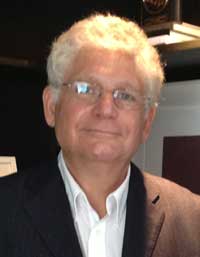Frank Fear responds to the Gruber/Kresky The Hill Oped and Let All Voters Vote.
Gerrymandered to Death

Didn’t We Draw Crazy Maps in Grade School?
Here’s my rendition of Italy, drawn in 5th Grade. That’s a fib, even though it could be true. I didn’t draw this map. Politicians did. It’s a map of Florida’s heavily gerrymandered 5th Congressional District.
Christopher Ingraham sees it as an example of ‘a crime against geography.” How so? Politicians toy with democracy, configuring districts to get an advantage in the electoral process.

Michigan’s Bob LaBrant is an example. LaBrant wrote a boastful book, Pac Man: A Memoir, about how he tilted Michigan’s Congressional districts in the Republican’s favor. In doing so, LaBrant subverted the electoral system for partisan purposes.
A subversive activity, such as gerrymandering, is even worse when it starts being interpreted by the public as ‘normal.’ That happens when a situation persists over an extended period of time (as gerrymandering has in Michigan). The more something hangs around (I call it my ‘Hanging around Theory’), the more it seems okay. Some people forget how things were done previously, and others are too young to have experienced ‘before.’ Voilà! It gets normalized.
The big question is how to change a subverted system. As a general rule, never expect the subverting party to budge much, if at all. The subverter isn’t going to risk losing hard-won gains. So other options need to be pursued, including legal/court action, state and federal legislation, activist organizing, and policy modification/changes. A combo approach is often best.
But no matter the route, any action must be based on a solid understanding of what’s happening, why, and which options are sensible, workable, and philosophically compatible. And when it comes to the fight for electoral reform, that’s what Jeremy Gruber, Harry Kresky, and Michael Hardy offer in their Touro Law Review article, and what Gruber and Kresky do likewise in their piece published in The Hill.
Their work is an excellent example of what it takes to make change possible. The big lesson is this: a situation can’t be taken at face value. Reality is nuanced. Gruber and Kresky tell us that when it comes to electoral reform. “The accepted approach to electoral reform has been to concede control of our electoral system to the two major parties,” the authors write, “while using legislatures and the courts to smooth over the excesses as a consequence.”
What’s wrong with taking that approach? “It has contributed significantly to the deterioration of democratic governance,” Gruber and Kresky conclude. How so? The penchant “to create boundaries, regulations, and limits” (to negate gerrymandered excesses) affirms party rule. And that’s a mistake. After all, the authors write, parties are “private organizations with no constitutional basis and interests separate from the body politic.”
The authors speak directly to those who decried the recent Supreme Court decision, Rucho v. Common Cause, which let stand partisan gerrymandering in Maryland (by Democrats) and North Carolina (by Republicans). Yes, the Court’s decision seemed to put a crimp in the gerrymandering reform movement as it is often undertaken, but it also opened the door to ending the dominant approach to electoral reform, which is party-based. Reducing party influence is the real prize, the authors contend—not just for all Americans, but for Independents, especially.
“Meaningful political participation requires the opportunity to influence electoral outcomes and cannot be predicated on one’s membership in one of the two major political parties,“ Gruber et al. write in their law review. It’s particularly troubling when millions of Independents are denied the right of voting access—as they are in many primary elections across the country—because of their decision NOT to affiliate as either Democrat or Republican.
Equal protection (under the law) is violated, the authors continue, “when the electoral system is arranged in a manner that will consistently degrade a voter’s or a group of voters’ influence in the political process.” It means that unaffiliated voters become second-class citizens in electoral terms. “Segregating unaffiliated voters, preventing them from meaningful participation in the primaries,” say Gruber et al. “is inherently unequal and deprives them of what is due them under the Constitution.”
Activists, litigants, and the courts can all benefit from reading and acting on what these authors offer. Theirs is a critical interpretation of those core words of democracy, “One person, One vote.”
Frank A. Fear is professor emeritus, Michigan State University, where he served as a faculty member for thirty years and worked in various administrative positions for nearly twenty years. Frank also writes about issues that intersect sport and society.

